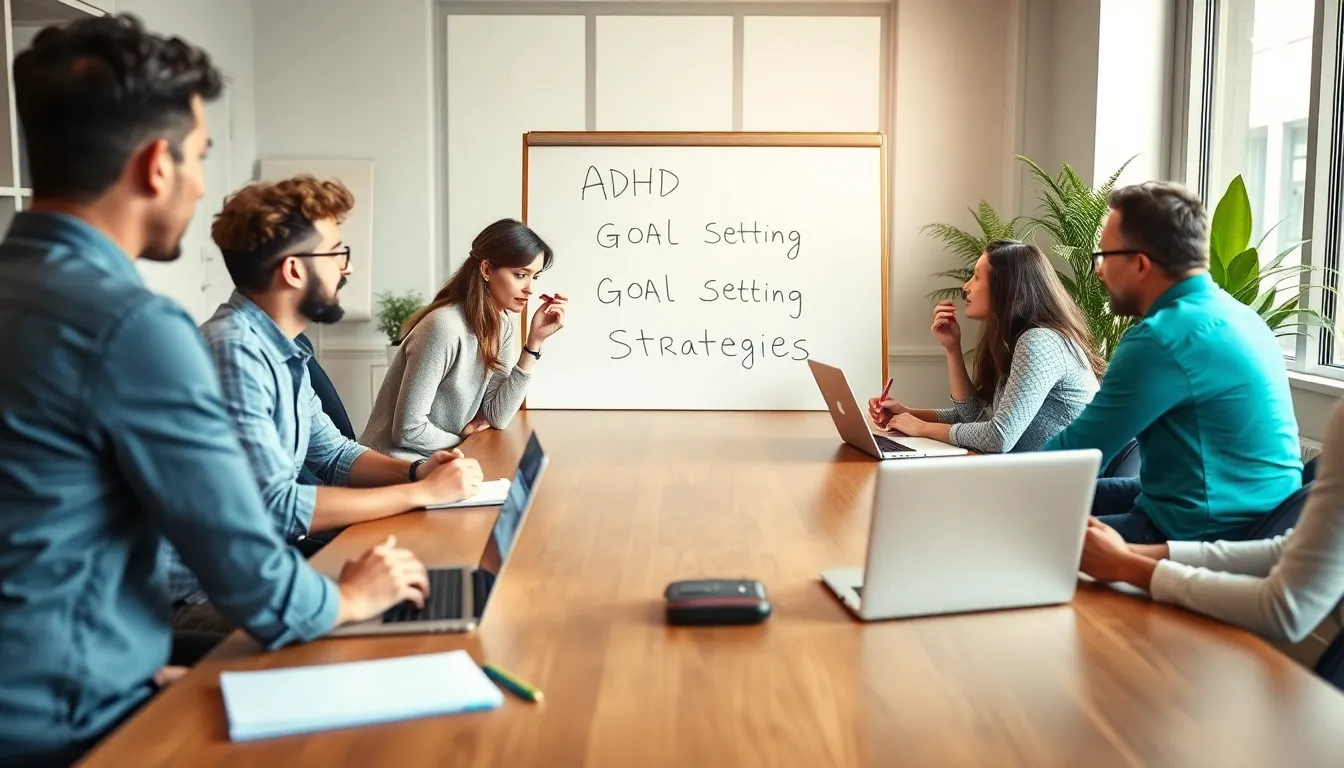Are you constantly battling the tangled web of distractions? Do tasks seem to disappear into a black hole? Meet your new best friend, the ADHD goal setting worksheet. Think of it as your personal GPS, guiding you through the twists and turns of daily life. With a little humor and a lot of intention, this article will uncover the power of goal setting specifically tailored for individuals with ADHD. Get ready to redefine your productivity and reclaim your time.
Table of Contents
ToggleUnderstanding ADHD and Its Challenges

Living with ADHD is like riding a rollercoaster that never ends: exhilarating but often overwhelming. Individuals with ADHD face unique challenges such as difficulties with organization, time management, and maintaining focus. Understanding these hurdles is crucial to developing effective strategies for success. Distractions can easily derail plans, causing frustration and disillusionment.
Also, low self-esteem often accompanies ADHD, leading to the feeling that one is perpetually falling behind. Awareness of how ADHD manifests can empower individuals to confront these challenges head-on, paving the way for goal setting to create clarity and purpose.
The Importance Of Goal Setting For ADHD
Goal setting serves as a beacon of hope for those with ADHD. It transforms chaos into order by establishing clear, tangible objectives. Goals provide direction, allowing individuals to prioritize tasks without feeling overwhelmed. When someone with ADHD sets specific objectives, it fosters a sense of achievement, encouraging persistence even in the face of setbacks.
Visualizing these goals also solidifies understanding of what needs to be accomplished. In essence, goal setting acts as a lifeline, pulling individuals away from the destructive currents of procrastination and confusion, guiding them toward productive waters.
Components of An Effective Goal Setting Worksheet
An effective ADHD goal setting worksheet isn’t just a template: it’s a toolbox designed to equip individuals with powerful techniques to reclaim their time and focus.
Creating SMART Goals
SMART goals are Specific, Measurable, Achievable, Relevant, and Time-bound. This popular framework allows individuals to carve out clear paths toward their aspirations. For example, instead of stating a vague goal like “I want to get better at managing my time,” a SMART goal would be “I will dedicate 30 minutes every day to planning my tasks for the following day.”
Breaking Down Goals Into Actionable Steps
Once the goals are defined, it’s essential to break them into bite-sized, manageable actions. Each small step becomes a mini goal that nudges progress along. This can reduce the feeling of being overwhelmed and offers quick wins, boosting confidence. For instance, if the bigger goal involves organizing a messy room, actionable steps might include sorting one drawer at a time, tackling the task over several days.
Tracking Progress And Adjustments
Tracking progress is not just about checking off boxes: it’s about reflecting on what works and what doesn’t. Regularly reviewing goals encourages individuals to analyze their achievements and setbacks, making necessary adjustments along the way. This adaptive approach is crucial for those with ADHD, who may find some strategies effective while others flounder.
Using visual aids like charts or graphs can add a rewarding element to tracking progress, providing tangible evidence of growth. Celebrate milestones, no matter how small. This not only promotes motivation but also reinforces positive habits.
Tips For Using Your ADHD Goal Setting Worksheet
To get the most out of an ADHD goal setting worksheet, keep a few tips in mind.
- Make it Personal: Customize the worksheet to reflect personal preferences and styles. The more relatable it is, the more likely it will be utilized.
- Keep It Simple: Avoid clutter. A clean layout prevents overwhelm and enhances usability.
- Use Visuals: Colors, icons, and images can aid memory and sustain interest.
- Set Regular Check-Ins: Schedule routine reviews to track progress and make adjustments.
- Stay Flexible: Understand that goals may need to be revised. Adaptation is key to success, especially in the context of ADHD.





